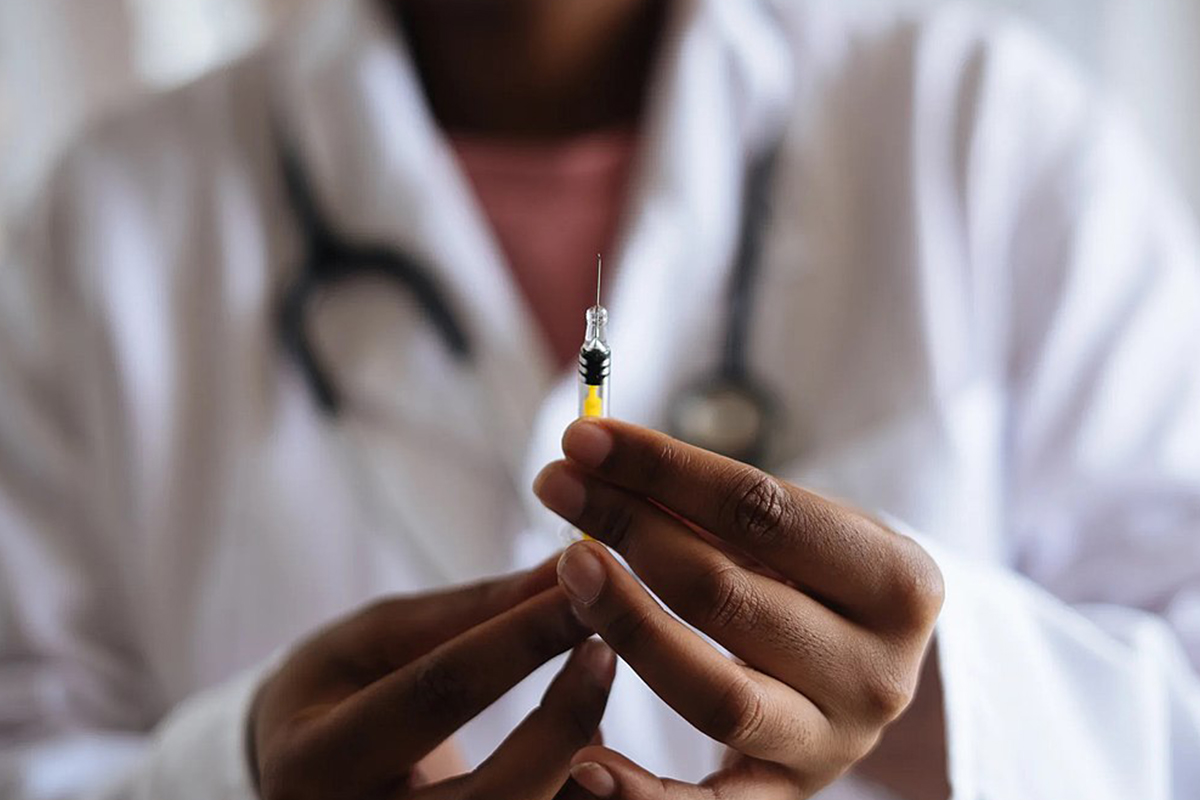Schools can play a critical role in vaccinating youth and families.
Early insights indicate that pediatricians and care providers are the strongest trusted messengers, access and convenience to vaccines matter greatly, and that comfortable locations like a doctor’s office, school or neighborhood pharmacy are preferred vaccination sites.
One of California’s strategies to vaccinate more young people is coordinating clinics specifically for them at school campuses.
According to a presentation given at a May 20 meeting hosted by the California Department of Public Health, the Newsom administration has been working with local health jurisdictions to coordinate the initial setup of school partnerships and two pathways have emerged.
The first would include a school serving as a vaccination site for any period of time. Those interested can fill out this survey and can expect to hear back within three business days with information on local resources.
The second path involved becoming a provider. If a district — especially a larger district — wants to receive vaccines directly, local leaders can review program requirements and register here.
During the meeting, officials revealed that 224,224 Californians aged 12 to 15 received their first dose of the Pfizer vaccine within the first five days of eligibility. The Centers for Disease Control and Prevention endorsed the safety and effectiveness Pfizer’s two-dose COVID-19 vaccine for the age group on May 12.
As of May 18, 401,532 16- and 17-year-olds had received at least one dose of Pfizer.
Though children and teens typically have milder cases of COVID-19, some can become severely ill or develop long-term complications. Vaccinating more young people is a critical step in protecting them and the community they reside in as a whole. It will also aid in a safe return to in-person instruction and activities. Families can make appointments for anyone age 12 and up via the state’s scheduling tool MyTurn.
Among the top motivations for the newly approved group to become vaccinated are mental health and wellness of themselves and their family members, contracting the virus and unknowingly spreading the virus. A survey of California parents found that the mental health and wellness of the young person is the top reason, even more so than them catching COVID-19.
On May 25, Moderna announced that after a trial proved its two-dose COVID-19 vaccine was effective in protecting those ages 12 to 17, the company plans to seek U.S. Food and Drug Administration approval in early June.
That same day, during a meeting hosted by CDPH meant to give local educational agencies further information on enrolling in the California COVID-19 Vaccination Program, Nisha Gandhi, immunization coordinator, went over a list of things to do before enrolling.
The list starts with all potential providers reviewing program requirements including the CDC provider agreement.
“The requirements include following an emergency use authorization agreement and has detailed information on storage and handling and talks about vaccine documentation and reporting elements,” Gandhi said.
Next steps include enrolling in the California Immunization Registry, confirming that storage and handling equipment complies with the CDC, completing a provider enrollment worksheet and adding vaccination locations and notifying responsible officers (a chief medical officer and a chief executive officer).
“When you’re thinking about taking those two positions of CMO and CEO and translating it to a school district, for a school district the superintendent would serve as the CEO and the CMO will be the person at the district-level who oversees all medical services,” Gandhi explained.
Completing required training on the myCAvax website is the next step.
“The training is pretty brief but its comprehensive and a reminder of the program overall and that is in myCAvax so once you complete it, it will allow you to move forward in your enrollment,” Gandhi said. The CDC Provider Agreement will also be completed in the portal.
Onboaring to MyTurn is the final step.
According to Gandhi’s presentation, MyTurn’s Public and Clinic features give providers an all-in-one, user friendly application for clinic management, dose accountability and reporting, public eligibility, public scheduling and walk-in registration for vaccine clinics.
“This could be very helpful as you make the decision to offer vaccines on-site at my school and want to use school nurses and this tool where you can send out a link and have parents schedule appointments for their kids. If you want to expand beyond children and invite family members as well you can,” Gandhi said. “It will also take all the data from the clinic so as patients check-in and get the vaccine, it will record all of that information and send it to the registry.”
Licensees authorized to administer the vaccine include physicians and surgeons, licensed vocational nurses and registered nurses, clinical nurse specialists, nurse anesthetists, nurse midwives, public health nurses and nurse practitioners.




